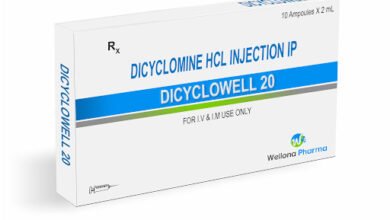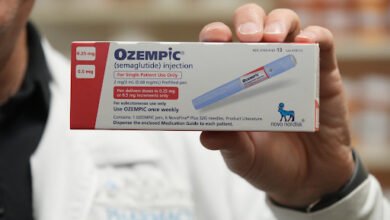Why Does my Belly Button Smell?

The human body is a fascinating and complex entity that often surprises us with its peculiarities. One such curiosity is the occasional unpleasant odor from our belly buttons. You read that right: belly buttons can sometimes develop a less-than-pleasant smell. But fear not; THis article will clear your doubts on “why do belly buttons smell.” And how to prevent this.
What are the Factors That Contribute to Belly Button Odor?
Common Factors That Contribute to Belly Button Odor may include:
Also, Read 5 Natural Drinks that Help Burn Belly Fat Overnight
1. Poor Hygiene-
At its core, the simplest explanation for belly button odor is hygiene or the lack thereof. Our belly buttons, or the slight indentation left behind by the umbilical cord, can become a breeding ground for unwanted elements if not properly cleaned. Over time, this hollow area may accumulate dirt, debris, bacteria, and other germs, which can contribute to the development of a foul odor.
Think of it as your belly button’s tiny ecosystem, where various bacteria (up to 67 different types, according to a 2012 research review) coexist. Fungi and other germs can also find their way into this unique environment. These microorganisms thrive on substances trapped in the belly button, which includes oil, dead skin, dirt, sweat, and other debris. They create an unpleasant smell as they multiply like the odor emanating from your armpits when you sweat.
The depth of your belly button matters, too. The deeper it is, the more space for dirt and germs to accumulate, leading to a more pronounced odor. However, the good news is that proper hygiene can quickly resolve this issue.
2. Bacterial or Fungal Infections-
While poor hygiene is often the primary cause of belly button odor, there are instances where a stinky navel can be a symptom of a condition requiring medical attention. Infections or cysts in the belly button can lead to foul-smelling discharge and other symptoms that warrant a visit to the doctor’s office. These symptoms might include:
-
White, yellow, or green discharge
-
Swelling and redness or discoloration
-
Itching
-
Pain
-
A scab around your belly button
-
-
A lump in your abdomen
According to a study conducted in 2014, people who have diabetes are more prone to developing infections, such as yeast infections, in areas like the belly button. Diabetes can reduce the immune system’s ability to fight infections due to high blood sugar.
Furthermore, recent abdominal surgery, such as the repair of an umbilical hernia, can increase the risk of infection in the belly button area. Additionally, a skin infection near a belly button piercing can develop as bacteria can enter through the pierced area.
3. Umbilical hernia-
Umbilical hernias can contribute to belly button odor due to the way they affect the area around the navel. An umbilical hernia occurs when a small part of the intestine pushes through a weakened spot in the abdominal muscles near the belly button, creating a bulge. This can create pockets or crevices where sweat, dirt, and bacteria accumulate. As these substances mix, they can produce an unpleasant smell. Additionally, the constant friction and pressure from the hernia can cause skin irritation, making it more susceptible to bacterial growth. Addressing any concerns related to umbilical hernias with a healthcare provider is essential to prevent complications and reduce the risk of odor.
4. Sebaceous Cysts-
While less common than epidermoid and pilar cysts, Sebaceous cysts can also become infected and emit a foul odor. These cysts originate in the sebaceous glands and fill with sebum, a waxy and oily lipid mixture that the glands typically produce for skin lubrication and protection.
Treatment for sebaceous cysts varies based on individual needs and medical recommendations.
Also, Read Top 12 Foods That Burn Belly Fat
5. Excess Moisture-
Excess moisture in the belly button can lead to an unpleasant odor. When moisture gets trapped, it creates a perfect environment for the growth of bacteria and yeast. An example is when you sweat, and the sweat collects in your belly button. It can become a breeding ground for microbes if it doesn’t dry properly. Over time, this can result in an unpleasant smell. To prevent this, keeping the belly button area clean and dry is essential. Gently pat it after showering, and wear breathable clothing to minimize moisture accumulation. Maintaining good hygiene can help prevent belly button odor caused by excess moisture.
When to Seek Medical Attention?
While hygiene-related belly button odor can be resolved with proper cleaning, some situations warrant medical attention. Here are some guidelines to help you determine when it is time to contact a doctor:
-
Persistent Discharge: If you notice an ongoing discharge from your belly button, it is advisable to consult a doctor. This discharge could be indicative of an underlying issue.
-
Signs of Infection: If you experience symptoms of infection, such as fever, redness or discoloration, swelling, or pain in the abdominal region, you should consult a physician. Pain while urinating could also be a concerning symptom.
-
Post-Surgery Concerns: If you have recently undergone abdominal surgery and notice any unusual symptoms or odors in your belly button area, it is essential to seek medical attention promptly.
Your doctor will thoroughly examine your belly button, collecting a sample of the discharge for laboratory analysis. This analysis will help determine the components present in the discharge and guide further treatment decisions.
What are the Treatment Options for smelling the belly button?
The appropriate treatment for belly button odor will depend on the underlying cause. Let us explore potential treatments for different scenarios:
For Infections:
-
Maintain good hygiene: Keep your belly button clean and dry if you develop an infection. Avoid wearing tight clothing, as sweat and dirt can accumulate under snug-fitting attire.
-
Topical treatments: Depending on the type of germ causing the infection, your doctor might recommend antifungal or antibiotic creams. Oral antibiotics may also be prescribed in some cases.
-
Epidermoid and pilar cysts: These can be treated by injecting medicine or draining the cyst.
-
Sebaceous cysts: Treatment for sebaceous cysts varies depending on your doctor’s recommendation.
-
Preventing Belly Button Odor: You must maintain good hygiene to avoid any unpleasant smell in the belly button.
-
Use antibacterial soap: Use a washcloth and soap while showering for optimal hygiene and cleanliness.
-
Gently clean: When cleaning your belly button, it is essential to be gentle and not scrub too hard to avoid irritation. Use a washcloth and index finger to clean your belly button and prevent unpleasant odors caused by poor hygiene.
-
Dry thoroughly:
-
Dry your belly button after showering to prevent moisture buildup.
-
Gently pat the area with a clean towel.
-
Use a washcloth and index finger to clean the area and prevent unpleasant odors.
-
Avoid scrubbing too hard to prevent irritation.
Also, Read 7 Simples Poses of Yoga to Reduce Belly Fat
Maintaining a Belly Button Piercing:
If you have a belly button piercing, it is crucial to keep it clean to prevent infections.
-
Soak some cotton in a mixture of antimicrobial soap and warm water.
-
Gently wash the area around the piercing.
-
Keep the site clean and dry at all times.
Avoid tight clothing: Tight clothing can irritate the affected area, so opt for loose-fitting attire.
Also, Read Does running Burn Belly Fat Effectively?
Conclusion-
While a smelly belly button can be unexpected and unwelcome, understanding its causes and practicing good hygiene can help keep this issue at bay.
However, if you encounter persistent discharge, signs of infection, or other concerning symptoms, it is essential to consult a healthcare professional. They can provide a diagnosis and recommend the appropriate treatment to resolve any underlying issues.
In the end, your belly button, though small and often overlooked, deserves some attention and care to ensure it remains odor-free and healthy.
Frequently Asked Questions
Why does my belly button smell like cheese?
The smell may be due to a combination of sweat, bacteria, and dead skin cells, creating an environment for odor.
How can I get rid of belly button odor?
Regular cleaning and drying of the belly button area can help prevent and eliminate odor.
Is belly button odor a sign of infection?
Sometimes, it can be a sign of infection, but usually, it’s related to hygiene and excess moisture.
What causes persistent belly button odor?
Factors like sweat, poor hygiene, an umbilical hernia, or an underlying medical condition can lead to persistent odor.
Can my diet affect belly button odor?
Yes, certain foods can contribute to body odor, including that of the belly button. A balanced diet may help reduce odor.
Source link
#Belly #Button #Smell



